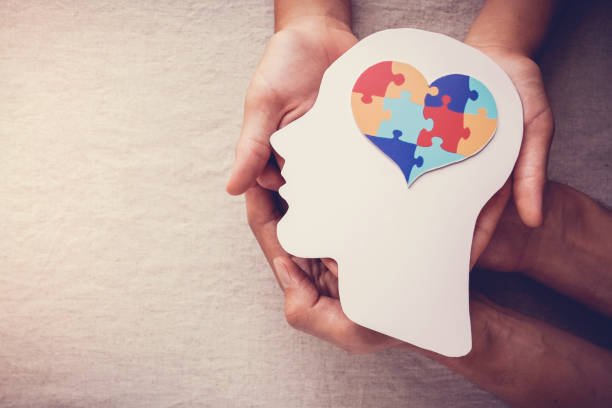
In the journey towards personal and professional growth, mindset plays a pivotal role. A growth mindset, characterized by a belief in one’s ability to learn and improve, is a powerful tool that can propel individuals towards achieving their goals. we’ll explore the importance of mindset and motivation, and provide practical strategies for cultivating a growth-oriented mindset to fuel your journey towards success.
Understanding Mindset:
Mindset refers to a set of beliefs and attitudes that shape how individuals perceive themselves and their abilities, as well as how they approach challenges and setbacks. The two primary types of mindset are fixed mindset and growth mindset. Fixed mindset is characterized by the belief that abilities and intelligence are static traits that cannot be significantly changed. Individuals with a fixed mindset tend to avoid challenges, fearing failure as a reflection of their inherent abilities. They often prioritize the validation of their existing talents rather than embracing opportunities for growth. Effort is seen as fruitless if it doesn’t immediately lead to success, and setbacks are viewed as indicators of incompetence.On the other hand, growth mindset is characterized by the belief that abilities and intelligence can be developed through dedication, effort, and perseverance. Individuals with a growth mindset embrace challenges as opportunities for learning and improvement, seeing setbacks as temporary obstacles to overcome. They understand that effort and resilience are essential for achieving mastery in any area, and they actively seek out feedback to enhance their skills and knowledge. The impact of mindset on behavior, learning, and resilience is profound. Those with a growth mindset tend to exhibit behaviors aligned with learning and improvement, such as seeking out challenges, persisting in the face of setbacks, and being open to constructive feedback.

The Power of a Growth Mindset:
In the realm of personal development and achieving success, the concept of a growth mindset stands as a powerful force. Embracing a growth mindset entails a fundamental belief in the ability to develop and improve skills through dedication, effort, and resilience. It contrasts with a fixed mindset, which believes abilities and talents are innate and unchangeable. One of the key benefits of adopting a growth mindset is increased resilience. When faced with challenges or setbacks, individuals with a growth mindset see them as opportunities for learning and growth rather than insurmountable obstacles. This resilience enables them to bounce back stronger, equipped with newfound knowledge and skills to tackle future challenges. Moreover, a growth mindset fosters heightened motivation. Instead of being discouraged by failure or criticism, individuals with this mindset are motivated by the belief that their efforts will eventually lead to improvement and success. This intrinsic motivation drives them to persist in the face of difficulties and pursue their goals with determination. IN terms of achievement, embracing a growth mindset has been linked to greater success. By continually seeking opportunities for learning and development, individuals can reach higher levels of performance and accomplishment. They are more likely to take on challenges outside of their comfort zone, leading to personal and professional growth.

Overcoming Obstacles:
cultivating a growth mindset involves adopting an attitude that embraces challenges, persists in the face of obstacles, sees effort as a path to mastery, and learns from criticism. However, there are common challenges and misconceptions that can hinder this mindset. One challenge is the misconception that intelligence and abilities are fixed traits, leading individuals to believe they cannot improve. This fixed mindset can manifest as fear of failure, avoidance of challenges, and a tendency to give up easily. Another challenge is the discomfort associated with stepping out of one’s comfort zone and facing uncertainty. To overcome these challenges, it’s important to reframe failure as an opportunity for learning and growth. Instead of viewing failure as a reflection of one’s abilities, see it as a natural part of the learning process. Embrace challenges as opportunities to stretch your abilities and develop new skills. Remember that effort and perseverance are key ingredients in achieving success.
Cultivating Motivation:
The relationship between mindset and motivation is intricate and significant in driving individuals towards their goals. A person’s mindset, whether fixed or growth-oriented, heavily influences their motivation levels. A growth mindset, characterized by the belief that abilities and intelligence can be developed through dedication and effort, is particularly conducive to enhancing intrinsic motivation. When individuals with a growth mindset encounter challenges or setbacks, they are more likely to perceive them as opportunities for learning and growth rather than insurmountable obstacles. This perspective fosters a sense of resilience and perseverance, which are crucial components of intrinsic motivation. IN contrast, individuals with a fixed mindset tend to believe that their abilities are innate and immutable. Consequently, they may shy away from challenges or give up easily when faced with difficulties, as they fear failure and view it as a reflection of their inherent limitations. This mindset can hinder motivation, as there is less willingness to exert effort when success is perceived as dependent solely on innate talent. Setting meaningful goals is essential for sustaining motivation over the long term. Goals should be specific, measurable, achievable, relevant, and time-bound (SMART). Moreover, they should align with one’s values and aspirations, providing a sense of purpose and direction. Breaking down larger goals into smaller, manageable tasks can make them less daunting and increase motivation by allowing individuals to track their progress more effectively. Staying focused amidst distractions requires discipline and effective time management. Techniques such as prioritizing tasks, creating a structured schedule, and minimizing interruptions can help maintain focus and productivity. Additionally, cultivating mindfulness through practices like meditation or deep breathing exercises can enhance concentration and reduce stress. To maintain enthusiasm for long-term projects, it’s crucial to periodically reassess goals and progress. Self-reflection allows individuals to evaluate their performance, identify areas for improvement, and adjust their approach accordingly. Celebrating milestones and acknowledging achievements, no matter how small, can bolster motivation and provide a sense of accomplishment. Positive reinforcement reinforces the connection between effort and outcomes, reinforcing the belief that progress is attainable through persistence and dedication.

Practical Strategies for Growth:
Developing a growth mindset involves embracing challenges, seeking feedback, and learning from criticism. To cultivate this mindset:
1.Embrace Challenges:
Instead of shying away from difficulties, see them as opportunities for growth. Challenge yourself to step outside your comfort zone and tackle tasks that push your boundaries.
2. Seek Feedback:
Actively seek feedback from others, whether it’s from mentors, peers, or supervisors. Be open to constructive criticism and use it as a tool for improvement.
3.Learn from Criticism:
Instead of taking criticism personally, view it as a chance to learn and grow. Analyze feedback objectively, identify areas for improvement, and use it to refine your skills and approach.
Resources for further exploration:
1.Books:
“Mindset: The New Psychology of Success” by Carol S. Dweck and “Grit: The Power of Passion and Perseverance” by Angela Duckworth offer valuable insights into mindset and motivation.
2. Podcasts:
“The Tim Ferriss Show” features interviews with high achievers and experts who share insights on personal growth and mindset.
3.Online Courses:
Platforms like Coursera and Udemy offer courses on mindset, resilience, and personal development.
